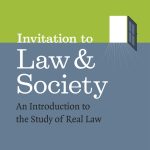Empowering Law And Society: EPW Unveils The Pathway To Progress
Law and Society EPW: An Overview
Greetings, Readers! In this article, we will delve into the fascinating world of law and society EPW. EPW, which stands for Empirical Legal Studies, is a field of study that combines social science research methodologies with legal analysis. This interdisciplinary approach allows us to gain a deeper understanding of the relationship between law and society, and how the law affects various aspects of our lives.
0 Picture Gallery: Empowering Law And Society: EPW Unveils The Pathway To Progress
What is Law and Society EPW?
Law and society EPW is a branch of legal studies that focuses on empirical research and analysis. It seeks to understand the impact of law on society and the social, economic, and political factors that shape the law. Through quantitative and qualitative research methods, scholars in this field aim to answer questions about how laws are created, implemented, and enforced, and how they affect individuals and social groups.
Who are the Key Players in Law and Society EPW?
Image Source: instagram.com
Law and society EPW involves the collaboration of legal scholars, sociologists, political scientists, economists, and other social scientists. These experts bring their unique perspectives and methodologies to the study of law and society, contributing to a comprehensive understanding of the subject. The field also engages with policymakers, lawyers, and judges to bridge the gap between theory and practice.
When Did Law and Society EPW Emerge?
The field of law and society EPW emerged in the mid-20th century as a response to the limitations of traditional legal analysis. Scholars recognized the need for a more interdisciplinary and empirical approach to legal studies, considering the broader societal context in which laws operate. Since then, the field has grown significantly and continues to evolve in response to new challenges and developments in society.
Where is Law and Society EPW Applied?
Law and society EPW is applied in various contexts, including criminal justice, constitutional law, family law, environmental law, and more. It helps us understand the consequences of legal decisions and policies, and how they impact different communities and social groups. By examining the social and economic factors that influence the law and its outcomes, scholars in this field seek to promote justice, equality, and effective governance.
Why is Law and Society EPW Important?
Law and society EPW is important because it provides a holistic understanding of the law’s role in society. By examining empirical data and conducting rigorous research, scholars can identify patterns, trends, and biases in the legal system. This knowledge can inform policy decisions, legal reforms, and social change efforts to create a more just and equitable society.
How Does Law and Society EPW Work?
Law and society EPW works by combining qualitative and quantitative research methods. Scholars collect and analyze data from various sources, such as surveys, interviews, court records, and statistical databases. They then use this data to test hypotheses, identify correlations, and draw conclusions about the impact of the law on society. The findings are often published in academic journals and used to inform legal scholarship, policymaking, and social activism.
Advantages and Disadvantages of Law and Society EPW
Advantages
1️⃣ Informed Decision-making: Law and society EPW provides policymakers with empirical evidence and data-driven insights to make informed decisions about legal reforms and policies.
2️⃣ Improved Legal Practices: By studying the social context of law, law and society EPW helps identify biases and inequities in the legal system, leading to improvements in legal practices and procedures.
3️⃣ Interdisciplinary Collaboration: Law and society EPW encourages collaboration between legal scholars and social scientists, fostering a more comprehensive understanding of the law and its societal implications.
4️⃣ Social Justice: This field of study sheds light on the unequal impact of the law on marginalized communities, contributing to efforts aimed at promoting social justice and equality.
5️⃣ Evidence-based Advocacy: Law and society EPW equips activists and advocates with empirical evidence to support their arguments for legal and social change.
Disadvantages
1️⃣ Time-consuming Research: Conducting empirical research can be time-consuming and resource-intensive, requiring extensive data collection and analysis.
2️⃣ Limitations of Data: Data availability and quality can present challenges in law and society EPW research, potentially impacting the validity and reliability of findings.
3️⃣ Complexity of Analysis: Analyzing the complex relationship between law and society requires expertise in multiple disciplines, which can be demanding for researchers.
4️⃣ Subjectivity of Interpretation: Interpreting empirical data and drawing conclusions may involve subjective judgments, which can introduce biases into the research.
5️⃣ Resistance to Change: Implementing evidence-based policy changes in response to law and society EPW research findings may face resistance from vested interests and existing power structures.
Frequently Asked Questions (FAQs) about Law and Society EPW
1. Is law and society EPW only applicable to the study of domestic legal systems?
No, law and society EPW can be applied to the study of both domestic and international legal systems. It helps us understand how laws shape society at various levels, from local communities to global governance.
2. Can law and society EPW contribute to legal reforms and policy changes?
Yes, law and society EPW provides empirical evidence and insights that inform legal reforms and policy changes. By identifying gaps, biases, and inequities in the law, scholars in this field contribute to efforts aimed at creating a more just and equitable legal system.
3. How can I get involved in law and society EPW research?
To get involved in law and society EPW research, you can pursue a degree or specialization in legal studies, sociology, political science, or other related disciplines. Engaging with academic journals, attending conferences, and joining research institutes or organizations focused on law and society EPW are also excellent ways to get involved.
4. Is law and society EPW primarily focused on studying the effects of law on society, or does it also analyze how societal factors shape the law?
Law and society EPW examines both the effects of law on society and the societal factors that shape the law. It recognizes the reciprocal relationship between law and society, understanding that legal systems are not isolated from the social, economic, and political realities in which they exist.
5. What are some emerging trends in law and society EPW?
Emerging trends in law and society EPW include the study of technology’s impact on the law, the intersectionality of law and identity, the globalization of legal systems, and the role of law in addressing climate change and environmental issues.
Conclusion
In conclusion, law and society EPW offers a valuable framework for understanding the complex interplay between law and society. By combining empirical research with legal analysis, this interdisciplinary field provides insights into the impact of the law on various aspects of our lives. While law and society EPW has its advantages and disadvantages, it plays a crucial role in promoting justice, equality, and evidence-based decision-making. As we continue to explore the dynamics of law and society, let us strive for a legal system that reflects the needs and aspirations of all individuals and communities.
Thank you for joining us on this journey through the world of law and society EPW!
Final Remarks
Disclaimer: The information provided in this article is for educational purposes only and does not constitute legal advice. As laws and societal dynamics vary across jurisdictions, it is essential to consult legal professionals and experts for specific legal matters.
This post topic: Law and Society


